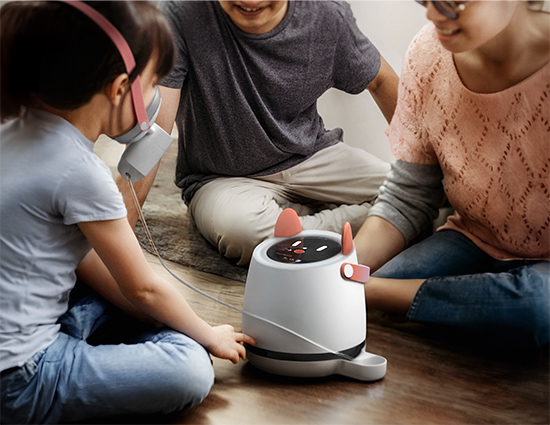The world is changing, and much of that change is bringing huge challenges. A rapidly growing global population is feeding a spiralling demand for precious energy and food resources. It also means that at the expected rate of growth, the world’s healthcare model is unsustainable. But look – I’m an optimist. I have a vision of a better future for healthcare, and a faith in the technology that will get us there.
I’m fortunate, of course, to be working at the cutting edge of innovation in my specialised field of ophthalmology. Along with colleagues, I collaborate with clients to turn technological possibilities into commercial reality. We’re taking a bold initiative to widen that perspective by bringing world-leading industry and healthcare professionals together in the coming weeks to debate matters.
Want to learn more?
Our aim is to broaden the conversation and explore the challenges from many different angles. Currently, the CC team is developing a series of ‘what-if’ visions that are informed by the exciting emergence of radical technology-based solutions. These visions will be shared and evolved – via engagement with KOLs and industry stakeholders – to create a roadmap to help us all reach the desired destination together. And, of course, potentially saving more eyesight and transforming lives.
Ambitious ophthalmic thinking
By definition, the visions will be bold, ambitious and unconstrained by current thinking. To give you a flavour, let me tell you where I’m at when it comes to just one fundamental component of the future – robotic surgery. Spin forward, if you will, to 2042 and assume that the demographic trends of today have continued.
Not only do we have a larger, older population and reduced workforce in healthcare, but the number of ophthalmic specialists per capita has shrunk. Age-related degenerative conditions continue to dominate the workload of the specialty, the ‘myopia generation’ is rapidly approaching middle age and we are starting to see more retinal complications associated with that condition. Diabetes continues to be a global issue.
I want to assume that the teething issues we are seeing today related to regulatory approvals of new technologies such as artificial intelligence (AI) and deep learning (DL) will have been ironed out. Also, the big unknowns around them will have been addressed and they will be well established assets. Regulatory paths will be clear, and as uncontroversial as blood transfusions are today (that is, common, well-regulated and ethically performed).
Similarly, I would like to believe that the woes of data transfer between platforms will be an issue of the past. Certainly, I hope that the difficulty of transferring data between equipment brands is no longer a problem. That all said, let’s now zero in on robotic surgery. Right now, we struggle to find a niche for it in ophthalmology. Within the current HC paradigm, it’s difficult to imagine how a robot would fit within our current business models and surgical needs.
Yet last time I had to consult a surgeon (for a back problem), I never saw him in person. I interacted with nurses, technicians, radiographers and all the rest when I needed my MRI and so on. The surgeon only needed access to the data, and we could discuss the results via videoconference. Had I needed surgery, I would have met him in person only on the day of the surgery.
More remote healthcare interactions
Ophthalmology is actually not so different. Specialists often only need to see OCT and other digital data to make a diagnosis. In the future, I can see this diagnostic stage to be even more extreme with less and less in-person contact and more remote and digital interactions, even to the extent of collecting data remotely.
I’m guessing that most would agree with this view. So now let’s enter the robotic system of the future with practically zero latency over remote digital networks. The ophthalmic surgeon could be sitting anywhere and still perform the surgery. The robot doesn’t need to reinvent ophthalmic surgery – it only needs to allow the surgeon to do what they do today, remotely.
This is a very different robot than the one we envisage today. It is not an automatic system; it is not used exclusively for very specific difficult procedures. It is used for all procedures, and it gives full agency to the surgeon. Most importantly, it frees the surgeon to work on multiple sites at literally the touch of a button. Patients can be prepped in different rooms or even different hospitals and the surgeon can move from one to the next seamlessly. Help for the most difficult cases can be brought in almost instantaneously as more senior surgeons oversee multiple junior surgeons in real time.
As for the patient experience? The pre-op set-up will be managed by an eye care technician at an ambulatory surgical centre (ASC), an OR, a clinic, or some new type of surgical centre designed for remote and in-person surgery. When remote, the surgeon will communicate with the patient via the latest communication technology which will all feel quite natural at this point.
I love these ideas, but I don’t know if they are viable. Would surgeons embrace this approach? Would payers and hospitals adjust their business models to allow it? Would safety be compromised? I’d certainly value your views, so please reach out to me on email if you’d like to further the debate. As I said earlier, the CC team is garnering opinions from far and wide.






